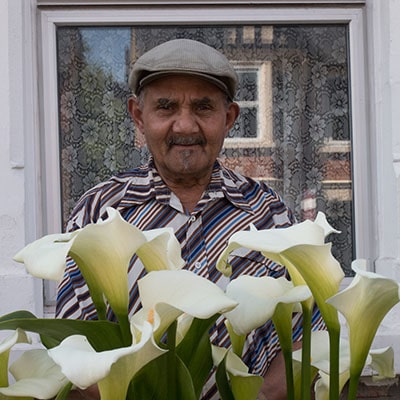Conspicuous consumpton is replaced by the ‘paygo’ economy
In 2012 the anthropologist Daniel Miller published a book called Consumption and its consequences. For those not familiar with him he is something of an expert on the way we relate to ‘stuff’- other books of his, and he is prolific, include The comfort of things and Stuff.
He is interested in exploring the different kinds of relationships people have with what they own and the trends he charts have huge implications for how we live our lives. As house prices and rental costs soar, young people move increasingly frequently and find themselves in increasingly crowded circumstances. Even the well paid software engineers in the San Francisco Bay Area struggle to find accommodation that reflects their expectations on $150,000+ salaries with stories of five people on the same room or 12 engineers sharing a two bedroom apartment rented via Airbnb. In such contexts ‘home’ is an email address and one’s central material possession is a laptop. Today we are all living a little this way. Our possessions are stored in the cloud or a distant server. On television we stream, instead of buying the latest drama series. When people refer to a box set it is rarely an actual box of discs on a shelf. In the world of mobile apps which enable us to source whatever we want for short periods the ‘sharing economy’ has become the norm. Instead of owning things we are renting experiences or products.
Ian Leslie characterises these phenomena as the ‘Paygo (pay-as-you-go) economy’ and identifies two key phenomena, the rise of renting and the decline of stuff. As he put is it, ‘If you are in the market for a car you will probably think about leasing it, or joining a car club or waiting till Google makes car ownership obsolete.’ A year or so ago the head of sustainability at IKEA said western households had reached ‘peak stuff’, a big statement from a senior executive of a company whose raison d’etre is selling people more stuff. The implications of this ‘Paygo economy’ for the nature of society are huge, from the deeply personal to the societal in terms of our public policy responses. Possessions form part of what is called ‘the extended self’; Miller describes how objects, however trivial can embody relationships. We all have them; souvenirs of debateable taste from a foreign holiday, cooking equipment from our first house, a couple of books from our university days, battered photos of family and friends, items of little value except to us, but nonetheless of considerable personal significance. These are items that we can identify with and as Miller says, ‘Usually the closer our relationships with the objects, the closer our relationships are with the people.’ Yet these days even our photos aren’t ours any longer when stored in the cloud, and you can’t lend an e-book to a friend or sell it second hand, because the publisher retains the rights over it. The power of objects came home to me particularly forcefully recently after the death of my mother, with the need to clear out the house she had lived in continually since the 1950’s when I was a child. Objects as memories…. and what to do with them.
A world where we own less and rent more, is not necessarily one in which we as consumers are empowered – you never really own the electronic version of a book; but it is certainly becoming more common. Some things like cars don’t need to be owned, apart from ownership conferring status. For much of the time they sit on parked on the drive. Specialist items of equipment – electric hedge trimmers perhaps, come into the same category and renting them makes sense. The story of ever larger, or ever more crowded houses, is the story of stuff. The American ‘McMansion’ is a function of exactly that impulse – to own it and flaunt it – conspicuous consumption. But what does it mean if we aren’t owning it any more? And what does it mean if many of the possessions are immaterial?
It could, and probably already does mean a really significant shift in society. Renting becomes easier if you don’t have lots of stuff to shift every time you move; but connections to community become shallower the more frequent the moves; the bonds of society are weakened. Owners and renters see the world through different eyes and even different politics. Many younger voters were instinctively ‘Remain’ in the EU Referendum last year. But many didn’t vote because they weren’t registered to do so, a function at least in part because of their lack of home ownership and ‘settled-ness’. Millennials who rent are barely half as likely to vote as their peers who are on the property ladder.
What does this mean for local governance? Almost one hundred and thirty years ago when local government was created, people lived, worked, and took their leisure in the same place. Now they live in one place – an oft changing one, work in another frequently quite a distance away, and take their leisure, not down the local pub or pool, but often in or beside one not just in another country, but another continent. The provision of local services from buses to libraries or public pools, seems less important. ‘Place’ is a much more flexible and individual concept – and ‘place’ in the sense of ‘home’ can to a much greater degree be almost anywhere. Loyalty to it and its collective democratic management is much weaker. Does this mean that housing and transport planning policies need to change as the ‘McMansion’ dies, ‘peak stuff’ is replaced by virtual stuff and the home becomes smaller and ‘smarter‘ as a result? Probably. The Briton as flat dweller.
Leslie senses that our way of living is changing rapidly, ’Rather than deploy what we own to say who we are, we use our photo streams and status updates to show it, even going so far as to arrange our meals and holidays with the aim of generating impressive on-brand content. The vacuum of meaning opened up by the disappearance of stuff may even have increased the stridency of our political debate. One way I can let people know who I am is by loudly asserting my membership of a political tribe. If I can’t show off my possessions I will show off my beliefs.’ What this means for the built environment of the future it is hard to say, but at its extreme, the ownership of nothing and the rental of everything has echoes the authoritarian, wealth-divided and feudalistic societies of medieval times.
This article first appeared in the April 2017 edition of Town & Country Planning.

